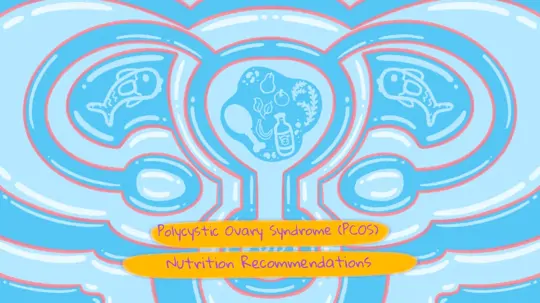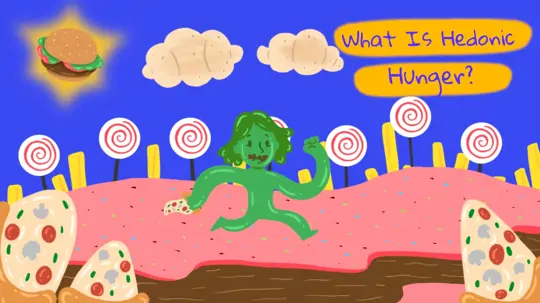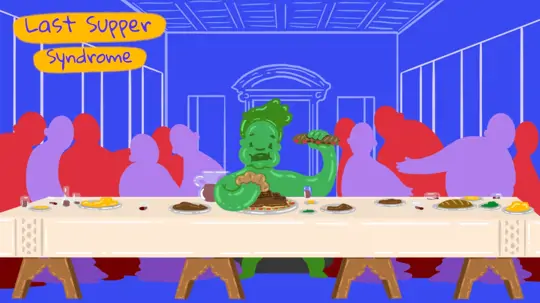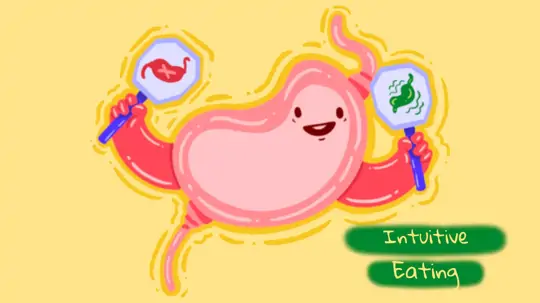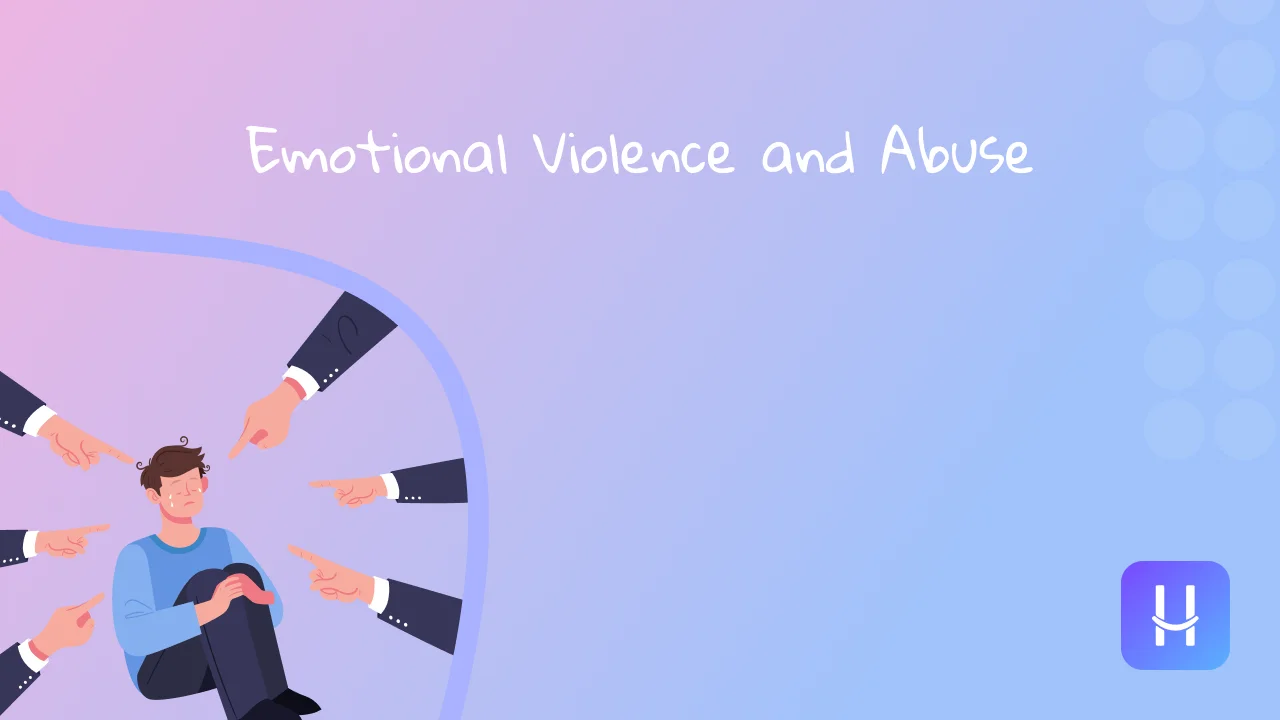
Start feeling better today!
Connect with your therapist today and take control of your life like our 850.000 happy clients.
Get StartedEmotional Violence
Unfortunately, millions of domestic violence cases are reported to the official authorities every year, but there are also many unreported cases for various reasons. Emotional violence, on the other hand, is generally more common than physical violence, begins earlier, and is rarely discussed. This is because emotional abuse is often very hard to spot.
Unfortunately, all over the world, too many people, regardless of whether they are men or women, can be emotionally violent to the people around them. People who have been subjected to emotional violence are more likely to commit emotional violence in the future, but we need to get out of this vicious circle. We invite everyone who has clicked on this article and started to read to be aware of the emotional violence committed to them first and then to others and to do something about it. We have prepared this article to learn what emotional violence is, its types, and solutions. Please share it with your friends and family to raise awareness of this issue.
Why Is Emotional Violence (Emotional Abuse) Hard to Recognize?
Emotional violence has indicators that can be very difficult to notice. Because emotional violence is usually perpetrated by those who are closest to you and those who love you the most. Another important reason is that it is done in a subtle way. The emotional abuser usually constantly blames their victims for certain behaviors. The person can no longer trust their own ideas and perceptions.
If it's hard for you to get out of an emotionally toxic relationship, you've probably had emotionally abusive relationships in the past, and perhaps experienced these types of relationships growing up. It is likely that it will be challenging at this stage to give up the relationship patterns you know. It's not your fault. It doesn't mean you're too sensitive or weak. Please, if you find yourself unable to get out of such a relationship, try to seek psychological support from your loved ones or more reliable sources, namely mental health professionals. At this point, we would also like to point out that getting psychological support is not something to be ashamed of, and in such cases, it is quite necessary to be able to reconstruct the traumatized self-image.
Usually, the person who abused the other person emotionally has also had toxic relationships. This person has been ashamed or humiliated in the past, and they also need psychological support. Although it is more difficult for abusers to realize this, they should see that these behaviors are wrong and seek psychological support if possible.
Another important reason why emotional abuse goes unnoticed or overlooked is that other aspects of the relationship are well; the abuser may be acting lovingly in between or after times of abuse, so you deny or forget parts of the emotional abuse.
Another possible reason is, as mentioned above, that you grew up with this type of relationship, and haven't had a healthy relationship with which you can compare this relationship.
Another important reason why emotional abuse goes undetected is that emotional abuse only happens between the abuser and you, and no other witness observes the behavior. In this case, too, there may not be a third person to tell you what you went through and verify your experience, or you may have difficulty explaining the situation to a third party because the abuse is subtle. Again, this is one of the reasons that make it difficult for you to realize that what you experience is emotional abuse.
Symptoms and Consequences of Emotional Violence
If you can't be sure if your relationship is emotionally violent and you ask yourself Am I Subjected to Emotional Violence?
it might be. Emotional abuse may start off harmlessly, but the levels can increase and types of emotional violence can vary once the abuser is confident that you will not leave the relationship. This means that these behaviors may not start before engagement, marriage, or pregnancy, but if you look back, you'll often notice subtle signs of control. Exposure to emotional abuse over time can lead to anxiety, namely anxiety disorder, post-traumatic stress disorder, depression, sexual aversion, sexual pain, chronic pain, or other physical symptoms.
Many people allow abuse to continue due to the fear of confrontation. If you allow the abuse to continue, it is likely that you have been subjected to emotional violence by someone in your past. A strict or alcoholic father, an overly controlling mother, or a cynical or jealous sibling could explain why your new relationships are of a similar type. This is not your fault. Healing includes understanding how you have been emotionally abused, forgiving yourself if you find yourself guilty, and rebuilding your self-esteem and confidence.

Examples of Emotional Violence
Some types of emotional abuse, which may seem obvious when you read them here, can become very difficult to notice or react to when you experience them. A person who practices one type of emotional violence is likely to practice other types as well. Emotional abuse is often practiced in several forms, intertwined.
Threatening, humiliation, punishment, excessive criticism, lying, manipulation, judgment, accusation, derogatory name calling, giving orders, extreme anger, interrupting, swearing, passive-aggressive behaviors, emotional exploitation are forms of emotional violence.
The abuser doing this in front of other people or as a joke can make things worse and harder to deal with. Your reaction can be described as an "exaggeration." All of these are very common, and all are emotional abuse.
Types of Emotional Abuse
- Humiliation
- Judging
- Mocking
- Extreme Criticism
- Insulting
- Blaming
- Name Calling
- Punishment
- Threatening
- Shaming
- Giving Orders
- Swearing
- Extreme Anger
- Lying
- Manipulation
The above types of emotional violence are relatively easy to spot. The following may be more subtle, complex, or may cause you to think that the other person acts this way because they love you:
Helicopter Control
Emotional abusers are people who try to control where you go, whom you talk to, what you think, your every move, your entire life. Going through someone's stuff, checking their messages, or spying on them is also emotional abuse, because it ignores personal boundaries. Emotional abuse is to control what the partner wears, where they go and what time they return, whom they see and how.
Emotional Neglect
Yes, emotional neglect is a common form of emotional violence in our country. There are many examples, many types of emotional neglect.
Changing the subject when you want to talk about something that bothers or upsets you, interrupting you and talking to another person, turning your head in a different direction, not responding or getting angry with you is emotional violence.
Phrases like Stop crying.
, You're exaggerating.
, You're too sensitive.
send the message that your feelings are invalid and misplaced, and are emotional neglect. Messages such as Crying is weakness.
, Fear is weakness.
, Anxiety and sadness are signs of weakness.
, especially given to men, contain emotional neglect, and unless individuals realize and resolve the problem, they can bear the trace of this neglect for life.
Unconditional Contrast
The perpetrator of emotional violence will argue against everything you say and challenge your perceptions, thoughts, and opinions. The abuser does not listen, does not try to understand your thoughts or feelings, and automatically opposes everything you say without thinking. Performing this type of violence in public can make this type of violence even worse for the person who is the victim of emotional abuse.
Blocking
This is another tactic used to stop talking. When you bring up a topic that you want to talk about, the abuser may change the subject without you noticing it, turn their head and pretend not to hear, blame you for the issue, become extremely angry, or use words such as Shut up!
or Enough!
.
Contempt and Interference
This type of emotional violence undermines your self-esteem and confidence, such as constantly correcting you, finishing your sentences for you, or speaking on your behalf without your permission and not allowing you to speak. It can also be performed while others are around.
Denial
The perpetrator of emotional violence may deny that an event took place or they promised to do something. They may say that they have not done anything to hurt you before, that you are making it up, that such a thing will not come out of their mouth, and they may blame you for doubting their good intentions. You may gradually begin to doubt your own memory and perception.
Emotional Exploitation
Exploiting emotions and making the other person feel bad by hurting themselves is also a type of emotional violence. It is a type of manipulation. It is a type of emotional violence that can be difficult to detect, as it makes you feel guilty.
Passive-Aggressive Behaviors
Passive-aggressive behavior is a covert form of emotional abuse. It is a way of expressing anger in indirect ways, not directly stating what feels wrong. It is quite common. A passive-aggressive person is often unaware that they are acting passive-aggressively. Keeping silent as if nothing is wrong, saying it's okay when asked if something is okay, sulking, or mistreating the other person is a form of passive-aggressive emotional violence.
The sentence "You didn't text me at dinner, but anyway, it doesn't matter; you were obviously having a lot of fun." contains passive-aggressive emotional violence.
Interruption
Interrupting, hiding, and not giving love, support, communication, or money are all ways to indirectly keep power and control over someone.
Mobbing
Mobbing is the name given to all kinds of emotional abuse encountered in business life. It can be done in the ways mentioned above. If you think you are experiencing mobbing, we recommend you read our article about mobbing.
Combating Emotional Abuse
Exposure to emotional violence will slowly lower your self-esteem. Therefore, it is necessary to identify the problem, take precautions, and take action without wasting time. Confronting a person who abused you emotionally can be quite challenging, especially when you're in a long-term relationship with them. The support of a group of friends, family, and, if possible, a mental health professional who is an expert in the field is necessary.
If you have been exposed to emotional abuse, the most important step you can take is to heal yourself. Have you always had similar relationships in your life? Why and how did you get yourself into this relationship? Was it a relationship that was always in your life? How were you affected by these behaviors? What memories of emotional violence can you recall? If you were there now, what would you say to yourself back then?

If you do not understand and heal yourself in this regard, it is possible that you will bring another relationship with similar dynamics into your life, even if you walk away from your current relationship. Thorough thinking and effort are required to improve, but it is definitely possible.
Once you regain your power and your self-esteem, you will never allow someone to abuse you emotionally again. This is a point you can reach by working on yourself. If the emotional abuse stops, your relationship can continue and thrive, but for real and long-term change, both parties need to be aware of the problem and be willing to take the risk for change.
